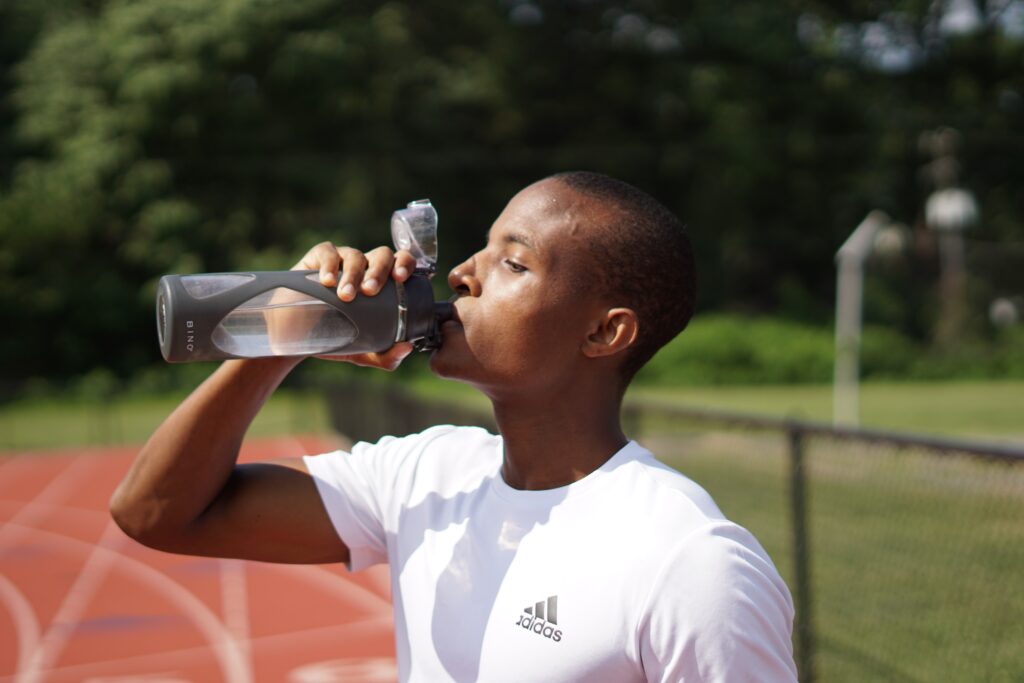News Team member Stephanie Oehler describes how the online "trad-wife" aesthetic fuels the flames of the anti-vaccination movement during the second-largest measles outbreak of the 21st century.
1.
What’s in Your cup? Various Beverages and their Health Effects — Part 1

By: Jocelyn Spizman
With so many beverage options on the market, it is helpful to understand the health effects they have on our body. Over the next few weeks, we will be bringing you a series in which we explore the health effects of various drinks. In this first section, we will be exploring the classics: water, milk and coffee.
Starting with the most basic and essential: Water
Staying hydrated with water is a no-brainer; it is a necessity for every cell in our body. Today, there are many different twists in which plain water has been jazzed up.
- Club soda: carbonated water with infused minerals (potassium sulfate, sodium chloride, and others depending on the manufacturer).
- The added salt may be a concern for those trying to keep their sodium levels down, often for high blood pressure concerns.
- Potassium is an important mineral in the body as it regulates fluid levels, blood pressure, muscle contractions and nerve signals.
- Sulfur is a key nutrient in protein synthesis; glutathione, an essential antioxidant, needs sulfur to be produced.
- Seltzer water: carbonated water without added minerals
- Some seltzer waters have added flavorings, either natural or artificial.[4]
- Sparkling mineral water: water from a spring that has natural carbonation with minerals such as magnesium, sodium, or calcium[4]
- Tonic water: carbonated water that contains minerals and quinine, an additive originating from the bark of cinchona trees that gives tonic water its bitter taste. Tonic water often contains high fructose corn syrup or sugar.
- Due to tonic water’s high sugar and calorie content, you should consume in small quantities. Other types of carbonated water that do not contain any sugar are healthier options.
Benefits:
- The hydration from water is important for preventing infections, keeping our joints lubricated, and many more essential functions.
- The minerals in tonic, sparkling, and club soda can be good sources of calcium, magnesium, and sodium though the concentration of these minerals is quite low.
- Calcium is crucial for bone health and muscle function and magnesium is significant in regulating blood sugar and blood pressure. [4,6]
- Carbonated water can help soothe an upset stomach. Sparkling water can improve swallowing ability, increase feelings of fullness, and help combat constipation and gallbladder issues.
Downsides:
- Carbonated waters produce carbonic acid.[4,6] Those struggling with acid reflux or GERD may want to avoid carbonated waters.
- Carbonated beverages that contain added sugars, such as tonic water, sodas, or flavored seltzers, can damage our enamel and lead to dental decay.
Milk
Today, dairy and non-dairy options are commonly used interchangeably, yet have widely varying nutritional makeups. Destination HealthEU has previously taken a deep dive into the various milks–dairy and otherwise–on the market. To learn more, click here.
Coffee

As one of the world’s most popular beverages, it is important to understand the physiological effects of coffee.
Benefits of coffee:[2,3,5]
- It can improve energy levels, mood, memory, reaction time, and general mental function.[2,3,5]
- Coffee contains caffeine, which is absorbed into the bloodstream, travels to the brain and blocks the inhibitory neurotransmitter adenosine.
- It can help burn fat by boosting one’s metabolic rate by 3-11%. and improve physical performance by signaling our fight or flight response in the sympathetic nervous system.[2]
- It contains essential nutrients such as riboflavin (Vitamin B2), Pantothenic acid (Vitamin B5), manganese, potassium, magnesium and niacin (vitamin B3).[3]
- It can help lower your risk of type 2 diabetes.
- Multiple studies have observed that people who drink the most coffee have a 23-50% lower risk of developing diabetes.
- Coffee has neuroprotective effects against degenerative diseases.
- Coffee drinkers have a 65% lower risk of Alzheimer’s disease.[2]
- Coffee drinkers have a 32-60% risk reduction of developing Parkinson’s disease.[2]
- Coffee could protect one’s liver from cirrhosis.[2]
- Coffee can help fight depression and help elicit positive emotions.
- It can lower one’s risk of certain cancers;
- Coffee has been found to have a protective effect against liver and colorectal cancer.
- Coffee drinkers have a 40% lower risk of liver cancer and 15% lower risk of colorectal cancer.[2]
- Coffee has been found to have a protective effect against liver and colorectal cancer.
- Coffee contains high levels of antioxidants which protect against oxidative radicals, cellular damage, and inflammation.[2,5]
Downsides to Coffee:
- Genetically-based slow metabolizers of caffeine have an increased risk of prediabetes, heart attack, and high blood pressure. For these individuals they may also have their athletic performance inhibited by coffee.[1]
- Coffee can trigger digestive issues, heartburn, anxiety, rapid heartbeat, and energy crash.
- Coffee can interfere with some people’s sleep cycles and contribute to insomnia.
So bottoms up to whatever you have in your cup! Here’s to choosing beverages with good hydration, flavor, health benefits, all of course with moderation.
References:
- Guest, N. S., Horne, J., Vanderhout, S. M., & El-Sohemy, A. (2019). Sport Nutrigenomics: Personalized Nutrition for Athletic Performance. Frontiers in nutrition, 6, 8. https://doi.org/10.3389/fnut.2019.00008
- Gunnars, K. (2018, September 20). 13 Health Benefits of Coffee, Based on Science. Retrieved from https://www.healthline.com/nutrition/top-13-evidence-based-health-benefits-of-coffee
- Robert H. Shmerling, M. (2020, August 18). The latest scoop on the health benefits of coffee. Retrieved from https://www.health.harvard.edu/blog/the-latest-scoop-on-the-health-benefits-of-coffee-2017092512429
- Raman, Ryan. (2020, March 18). What’s the Difference Between Club Soda, Seltzer, Sparkling, and Tonic Water?. Healthline. https://www.healthline.com/nutrition/club-soda-vs-seltzer-sparkling-tonic
- Sass, C., & Sass, C. (n.d.). 6 Reasons Coffee Is So Good for You. Retrieved from https://www.health.com/food/health-benefits-of-coffee
- Spritzler, F. (2019, November 3). Carbonated (Sparkling) Water: Good or Bad? Retrieved November 1, 2020, from https://www.healthline.com/nutrition/carbonated-water-good-or-bad

